MercoPress. South Atlantic News Agency
Tag: venezuela economy
-
Tuesday, November 19th 2019 - 08:55 UTC
Maduro publicly thanks God for the all mighty dollar as an escape valve for Venezuela's economy

Venezuelan President Nicolás Maduro embraced the currency of his bitter rival the United States on Sunday, calling it an “escape valve” that can help the country weather its economic crisis amid U.S. sanctions aimed at forcing him from power.
-
Thursday, October 24th 2019 - 09:50 UTC
Venezuela exodus on track to reach 5 million, says UN; 5.000 leave every day

The exodus of Venezuelans is on track to reach 5 million people, as pressure grows on neighboring countries to provide them with long-term support, United Nations and European Union officials said on Wednesday.
-
Wednesday, February 7th 2018 - 07:50 UTC
Venezuela desperate after US dollars; greenback costs 228.000 Bolivars in the black market

Venezuela’s central bank announced a devaluation of more than 99% of its official exchange rate with the launch of a new foreign exchange platform, a move critics quickly said would not create a functioning currency market.
-
Thursday, August 10th 2017 - 11:27 UTC
Triple digit inflation in Venezuela: US dollar trades at 10.387 Bolivar; minimum wage 97.531 Bolivar
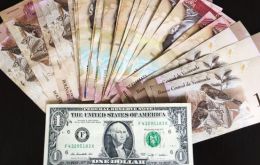
The extreme volatility of Venezuela's exchange rate has the crisis-hit country's shop owners hurriedly marking up their merchandise and consumers balking at the higher price tags. Just last week, the Bolivar currency fell around 70% on the black market, according to DolarToday, the opaque U.S.-based website that dictates the black market rate.
-
Thursday, May 4th 2017 - 07:12 UTC
Venezuela situation escalates in violence and hatred with no rational solution on sight

Street protests in Venezuela claimed at least two more fatalities on Wednesday, bringing the total number of people killed to more than 30 in several weeks of unrest. Thousands of Venezuelans took to the streets as president Nicolas Maduro began the process of overhauling the country's constitution -- a move that has raised the stakes in a bitter standoff between Maduro's government and a growing opposition.
-
Friday, June 10th 2016 - 08:08 UTC
World Bank slashes global growth forecast to 2.4%, down from 2.9%

The World Bank has slashed its 2016 global growth forecast to 2.4% from the 2.9% estimated in January, due to stubbornly low commodity prices, sluggish demand in advanced economies, weak trade and diminishing capital flows.
-
Tuesday, May 3rd 2016 - 06:00 UTC
Venezuela's explosive situation makes Pope Francis send a “personal letter” to Maduro
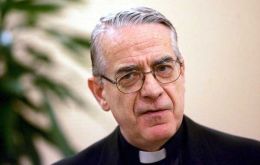
Pope Francis has sent a “personal letter” to Venezuelan President Nicolás Maduro in which he addresses his concern over the “seriousness” of “the county’s situation”, revealed papal spokesman Federico Lombardi confirmed to journalists this weekend.
-
Friday, April 29th 2016 - 06:18 UTC
Latam and Caribbean forecasted to contract 0.5% in 2016, worst two-year since 1982, says IMF
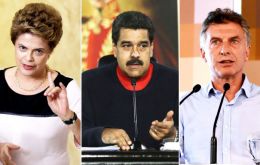
Latin America and the Caribbean will post an overall 0.5% economic contraction in 2016, the International Monetary Fund forecast in its latest report, capping the region's worst two-year period since the 1982 debt crisis. But the IMF said the region is expected to rebound to 1.5% growth in 2017, avoiding the “lost decade” phenomenon that marked the 1980s.
-
Monday, January 25th 2016 - 10:01 UTC
IMF estimates 2016 Venezuela inflation at 720% and 8% economy contraction
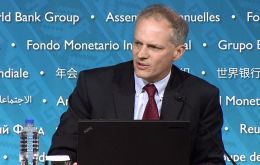
Venezuela’s consumer inflation, already the world’s highest, will more than double this year surging to 720% in 2016 from 275% last year, according to a note published by the IMF’s Western Hemisphere Director, Alejandro Werner.
-
Saturday, January 16th 2016 - 10:58 UTC
Venezuela in “economic emergency”: Q3 inflation 141.5% and GDP down 7.1%
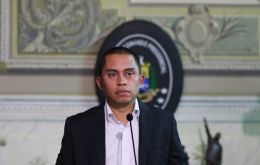
Venezuelan President Nicolas Maduro's government has decreed a 60-day “economic emergency” for the recession-hit OPEC nation reeling from low oil prices and a sputtering state-led economic model. The government on Friday also published the first macroeconomic data for more than a year, showing GDP dropped in the third quarter while inflation surged.
